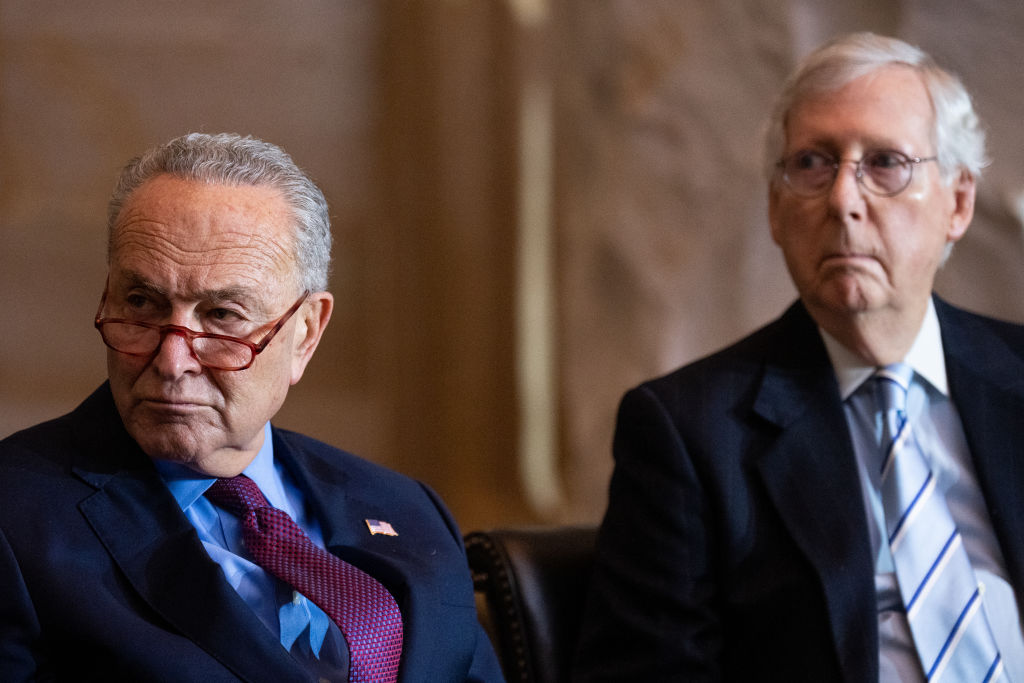
This article is part of The D.C. Brief, TIME’s politics newsletter. Sign up here to get stories like this sent to your inbox.
The pageantry around selecting a new Pope in the Roman Catholic faith is full of ritual and diplomacy, secrecy and sometimes even spycraft. Oh, and spite. Lots and lots of spite.
It is, to be frank, an accidental model for Washington.
When it comes time, the Cardinals who elect the incoming implicitly infallible leader of the world’s billion-plus Roman Catholics are sequestered, incoming and outgoing: no guests, no reporters, no tweets. The conversations are strictly private, both in the moment and for time immortal. Up until the early 20th century, when European monarchs could unilaterally block the incoming Pontiff, that secrecy was a matter of national security. Now it’s more about preserving the church’s ability to present a unified front and to speak with one voice.
Ballots that don’t result in an election are set on fire, sending chemically-tinged black smoke billowing over the rooftops of the Vatican to signal that round of voting was a dud, or white when at least two-thirds of the Cardinals are in agreement: Habemus Papam. We have a Pope.
Well, D.C. sure takes a shine to such pageantry too, although the stakes are clearly different; dogma and canonical practice don’t hinge on democracy and more than a hope and a prayer can deliver a spending package for lawmakers. Still, with Friday’s deadline looming to fund the government and prevent a shutdown, a whole lot of Capitol Hill is holding optimism that their own version of white smoke—the release of a self-congratulating joint statement signaling the end of an equally byzantine process: Habemus Omnibus.
Congressional appropriators—known as cardinals themselves in no accidental nod to Catholicism—are still trading ideas with days left to finalize a deal. The process isn’t as opaque as a papal conclave but the path to a resolution is almost as mysterious, and perhaps as needlessly overdone. Democrats and Republicans remain about $26 billion apart in their topline spending on domestic buckets of cash, meaning they don’t even know how big the pie is that they’re crowding around with carving knives, though both sides agree it will be north of $1.5 trillion through Oct. 1.
Top lawmakers and their aides had hoped to have wrangled an agreement by late Friday. That didn’t happen but progress continued, sufficient enough that the staff—and many of their bosses—stayed at the table and on email chains through the weekend and into Monday. No one is ready to walk away, but there is an increasing understanding that they may have to boot Friday’s late-night deadline into the following week, meaning lawmakers could end up stuck in Washington right up until the holiday break. A Dec. 16 deadline meant to force conversation is now very likely to be pushed back to at least Dec. 23. While no one is eager to say it, that Dec. 23 deadline may even slip into the week between Christmas and New Year’s.
Congressional Republicans are balking at the size of Democrats’ ambitions because they’re pegged to spending that included billions passed as part of President Joe Biden’s social-spending bill and Covid-relief packages. GOP lawmakers want the baseline number to return to sums reflective of spending before those big-ticket items were signed, while Democrats are trying to defend as much of their gains as they can.
Meanwhile, this spending package is probably the last meaningful piece of legislation for the 117th Congress before it adjourns. In practice, a number of lawmakers are at the ready with amendments to salvage proposals that made it out of committee but didn’t make it to the floor for a full vote. An election-defense measure intended to prevent another Jan. 6 attack is broadly popular but stuck in neutral. And a nominally separate defense measure—one that Congress has managed to pass every year without interruption since the height of the Cold War—is also on deck.
All of which is to say this: Congress has a number of deadlines stacked against it, the first of which is Friday. Compounding political secrecy and party sedition are in play, and lawmakers will struggle to confront both as they try to circumvent the troubles ahead. A fight over whether to keep the lights on—while holiday lights themselves twinkle—offers an incongruent tableau for Washington. Sadly, it’s not an unfamiliar one.
Make sense of what matters in Washington. Sign up for the D.C. Brief newsletter.
More Must-Reads from TIME
- Why Trump’s Message Worked on Latino Men
- What Trump’s Win Could Mean for Housing
- The 100 Must-Read Books of 2024
- Sleep Doctors Share the 1 Tip That’s Changed Their Lives
- Column: Let’s Bring Back Romance
- What It’s Like to Have Long COVID As a Kid
- FX’s Say Nothing Is the Must-Watch Political Thriller of 2024
- Merle Bombardieri Is Helping People Make the Baby Decision
Write to Philip Elliott at philip.elliott@time.com